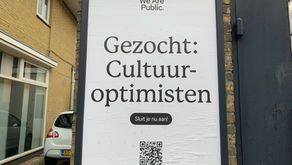Manchester
- Judith Weir
- May 5, 2017
- 2 min read

I had to spend some weekend time in the grandly named UK Media City in Salford. It’s not the most inspiring landscape, so I was extra glad to cross the River Irwell in the evenings and get into Manchester which was absolutely pulsing in the dark hours. Since my last visit even more of the city’s dark redbrick Victorian buildings had been smartened up, and formerly gloomy stretches of road were looking luxuriously grand, reminiscent dare I say of the great European boulevards.
It’s often my experience though, when visiting major British cities with demonstrably active musical cultures, that my free night off coincides with nothing happening. Numbers of times in Glasgow, Cardiff, Belfast I’ve ended up visiting a multiplex with sticky carpets for want of any classical performance at all to attend on that particular date. But this wasn’t to be the case this evening in Manchester when, on entering the welcoming foyer of the Royal Northern College, I discovered that the concert of my dreams was about to start.
This was the culmination of the RNCM’s Day of Song, the song in question being folk song, and for this evening concert, the RNCM Chamber Choir had joined forces with their fellow students Arkensemble, under the extremely charismatic leadership of sax professor Rob Buckland. Arkensemble, modelled on the Netherlands Wind Ensemble, is basically a classical double woodwind and brass group, but with the crucial addition of two saxophones, who give the overall sound an exciting bite but also an enriching mellowness. It was a thrill to hear such favourites as Brahms’ Zigeunerlieder given ‘the treatment’ (in an arrangement by Lucy Armstrong); and I’ve rarely seen and heard such a genial concert opening as Buckland’ s own Astor Piazolla Tango tribute, where the numerous wind players entered the hall one by one and began to add their own line to what was already going on. The genre of folk song arrangement often seems to be regarded, by programmers and commentators, as a byway of classical music; but for me it is ‘route one’ towards melody and expression.






